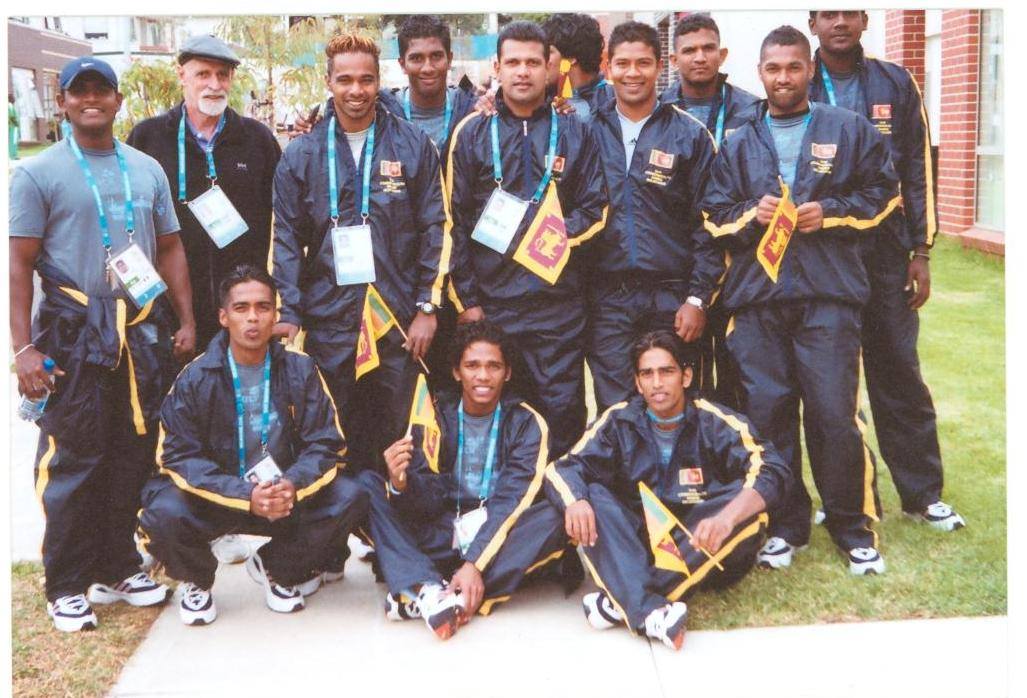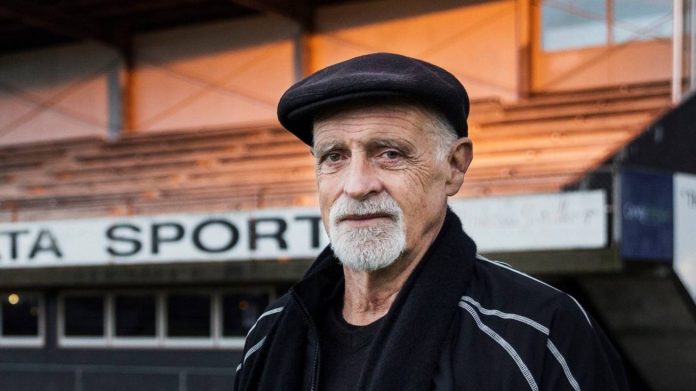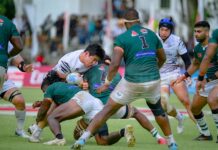My first memory of George was in Catania, Italy in 1993 when I was captaining the Sri Lanka 7s team aiming to qualify for the World Cup 7s tournament to follow.
By Rohan Abeykoon (Sri Lanka National cap, Chairman of Selectors Sri Lanka Rugby)
He was coaching the Hong Kong team in a tournament where only the top four teams were to qualify, and consisted of an intense field of nations including tournament favourites Namibia together with others expected to challenge among them Italy, Zimbabwe and Kenya. It was an intense tournament where each team played four games on day one and then a last group match on day two before the knockout rounds started soon after.
Hong Kong had an outside chance of making the top four and it depended on them avoiding a quarter final clash with Namibia who looked the best team at the tournament. The draw was such that in the group Hong Kong were, they had to top it to avoid meeting Namibia in the last 8 but a draw against Zimbabwe left their fate in the hands of Sri Lanka to top the group. Sri Lanka had lost three games and won one on day one and were to play Zimbabwe in the last pool game on day two. If Zimbabwe beat us and scored four tries in doing so they would have topped the group and Hong Kong would have found themselves in a mission impossible position to make the last four.
George turned up as we were winding off at the end of day one and told us of the predicament Hong Kong were facing and said he wanted us to help his team by ensuring we don’t concede four tries to Zimbabwe. He then took us through a thirty minute session putting in place a strategy both offensively and defensively to give us our best chance with the intent of playing to win .I don’t think anyone expected us to compete, let alone restrict Zimbabwe to under four tries, but George thought otherwise. He saw the capability in the team and masterminded a game plan to do the impossible. We did not win the game the next morning but we lost by three tries to one and it was by far our best performance against a top team in the tournament which helped Hong Kong top the group. Zimbabwe were duly dispatched by Namibia and failed to qualify. Hong Kong progressed and deeper in the tournament faced Namibia and lost badly which only accentuated that their fate would have been sealed if they met them earlier. George had masterminded their qualification by coaching a competing team and showed the brilliance of the man as a coach.

George was the catalyst in making Hong Kong the power house it is in Asian Rugby today and under his watch they beat USA, Canada and Japan for the first time in their rugby history. His success in Hong Kong led him to be a part of the team that introduced Rugby to China and in three short years they qualified to play in the Hong Kong sevens and are today one of the top teams in the region.
As fate would have it, George came to Sri Lanka in 1999 as a consultant to Kandy Sports Club and through the enormous success there he then went onto coach the Sri Lanka national team. The period under George was one of the most progressive periods of national rugby here and led to my close association with him being in my first stint as a national selector at the time. George had an uncanny ability in spotting talent and getting the best out of a team with the resources available. He was able to fix problems with consummate ease which others struggled to solve. I remember at one national training session the loose head prop was struggling with his technique and could not hold his side of the scrum. George simply told him to change the angle of his leading foot from 90% to 45% and he was a completely different beast at scrum time thereafter. Maybe his Physical education degree from the University of Otago helped him overcome issues that consumed us lesser mortals with regards to how the body works.
When I first met George in Catania I believed him to be a grumpy old man who did not smile much and was rugby nausea personified. Through my association with him in Sri Lanka I saw a side of him that I came to love and enjoyed tremendously. George had a dark sense of humour with a sarcastic twist that was lost on most, but enjoyed by those who understood it. It was never done with malicious intent but with a twinkle in his eye and you needed to know that to appreciate how quick witted he was.
I was privy to retorts at national training such as “the entire front row has one brain and the hooker has 90% of it” which were taken with huge grins by those it was intended for, as it blew over their heads; or telling a player to close one ear which he duly did while he re explained what he wanted him to do so that the information wouldn’t go in through one ear and out of the other. He would have me in stiches when he asked a player “if the lift went to the top floor” when they failed to understand the pattern of play he wanted and the metaphors, similes and adjectives he had for anyone and everyone were legendary on their own.
George also always looked older than his years and a funny story in this context comes to mind. On one of his stays at Malik’s house in Kandy when he was coaching Kandy, he befriended the security guard who when he felt comfortable enough asked George how old he was. George asked him to guess and he said: “Sir around 70”. George who was not yet 60 at the time retorted “what 70 !!!!”. Realizing he had made a mistake and that George may have taken offense, in a flash the guard corrected himself “sorry, sorry Sir 80 “. George thought that was one of the funniest things that had happened to him and took it in good spirit.
George loved rugby and lived and breathed it. His last coaching assignment saw him going back to his roots to coach his hometown team of Matamata, taking them from the 2nd division to the 1st division for the first time in their history. Such was the mettle of the man.
He was a legend in the field of coaching and probably the best I met in his field throughout my association with the game.
George was 76 at the time of his passing and leaves behind his wife and rock of many years Philippa and his two daughters Leigh and Greer.
May the Turf on which he strode for many years leaving his imprints forever lay softly over him.

















